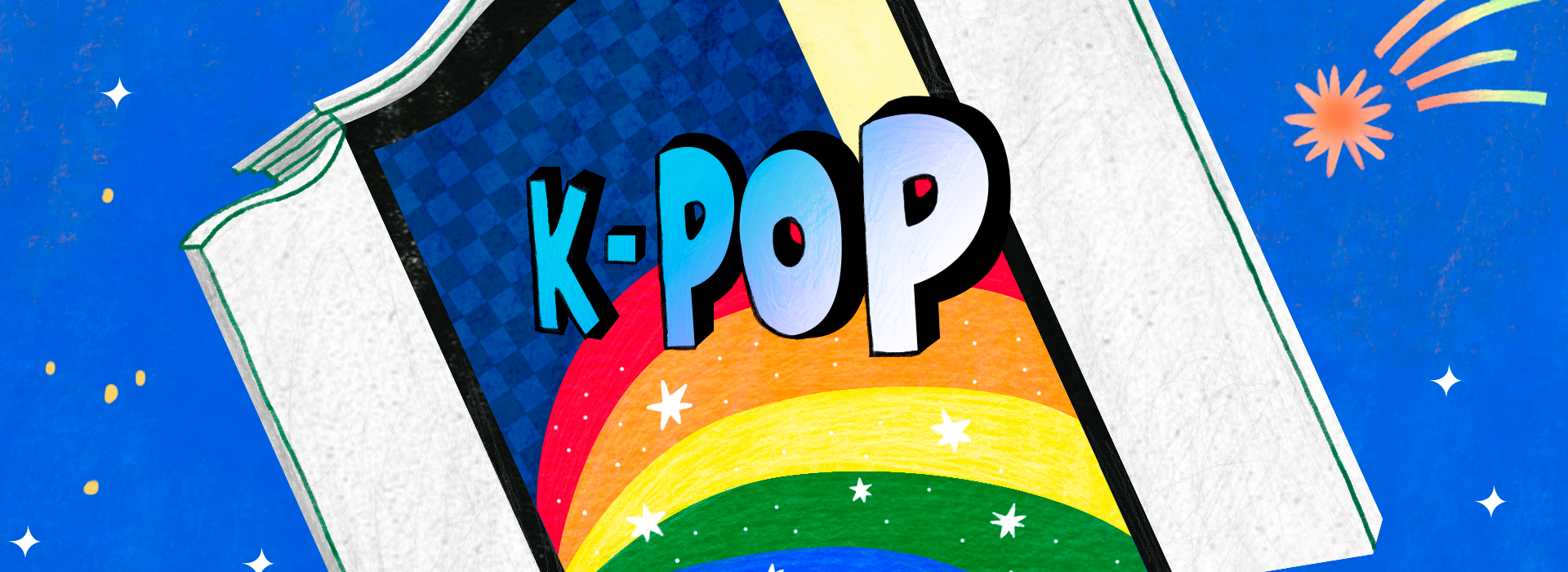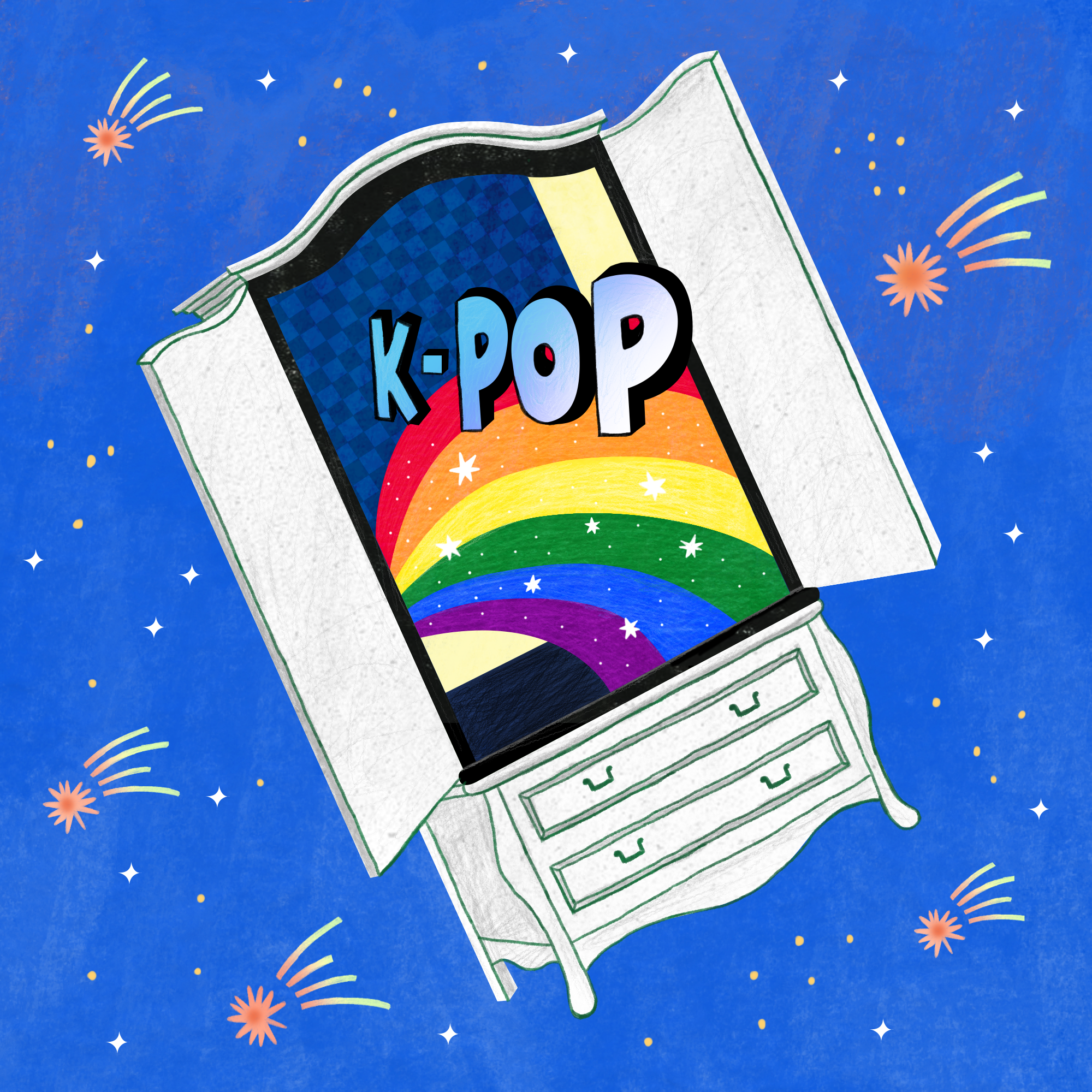
“Reply with one word that represents everything BTS has done for you. It can be anything.” The comments left on this tweet posted by one LGBTQ+ BTS fan account perfectly illustrates what BTS means to LGBTQ+ ARMY. The LGBTQ+ in LGBTQ+ ARMY refers to people who fall under the social minority umbrella of sexual orientations and gender identities. While at once identifying as ARMY, or fans of BTS, they also belong to communities of different sexual orientation (homosexual, pansexual, asexual, etc.), gender identity (transgender, cisgender, genderqueer, etc.) and more. Danny, an LGBTQ+ ARMY who identifies as a genderfluid biromantic asexual person, describes BTS as “one of the main reasons as to why I was able to find things to love about myself, but they’re also one of the reasons why I was able to find things to love about everything else as well. Living, dreaming, resting, nature, music, art, down to every little thing you could think of.”
YouTuber Jose says that BTS gave him a reason to break from his past, a time when he had been “hiding for a lot of years of my life and being bullied in school for being gay,” which “made me build a hard shell around me.” Once he fell in love with BTS’s music, message and the group itself, he saw himself breaking away from “the person I was becoming” through unwanted experiences, instead “opening up” about his true self more and learning to “crack that shell little by little” and “love myself a bit more each day.” To him, being ARMY is about knowing to “accept people for who they are no matter what their background is, who they want to love or how they identify,” which led him to come out to his viewers and share parts of his life as a gay person in solidarity with other ARMY. LGBTQ+ people often fall in love with K-pop or their favorite artists not only because of the resonance they feel with the universally appealing themes, such as growing pains and learning to love yourself, but also about how the genre has consistently promoted queer-friendly concepts to illustrate such themes. Danny says that the moment he discovered he was bi was when the “things I did and I felt, they all started to feel right.” Being queer was the first step for Danny to break free from conforming to gender expectations and stereotypes. echo, a nonbinary CARAT living in France, is happy about “the fact that most SEVENTEEN songs are gender neutral and can represent different kinds of love,” explaining how, when it comes to “ROCKET,” they “could associate it with a partner of whatever gender,” while “Kidult” sends the message that “it’s okay to go through hard times.” Just like how the song “_WORLD” is open to the possibility of fans filling its underscore with any word, K-pop songs leave their listeners to fill in the blanks with their own experiences and feelings; people can interpret K-pop songs in their own ways and personally assign unique meanings with them.
“My queerness is my ‘crown,’ and I want to wear it proudly,” says Indonesian LGBTQ+ MOA Brian, who identifies as a pansexual FTM (female-to-male) individual. To them, the “horn” in the lyrics to “CROWN” by TOMORROW X TOGETHER is their “queerness.” According to Brian, the horn symbolizes the “pains and struggles of adolescence” or “any other thing about oneself that one struggles to come to terms with.” The song “Can’t We Just Leave the Monster Alive?“ also resonates with Brian, who, “as a queer child,” connects the song to wanting not to “have to face the ‘big bad monster’ that is adulthood” at a time when they feel that, “as I get older, life will get tougher and I’m not sure if I’ll ever be ready to face it.” Like Brian, listeners from diverse backgrounds are able to sit down comfortably with K-pop—a blank canvas that they can color in with their own stories and feelings to better empathize with.
The practice among LGBTQ+ K-pop fans of adding the pride flag that best represents their identity to their favorite artists’ pictures has its origins in the experiences they have had as K-pop fans. “When I do these photo edits related to my own identities, it makes me feel happy to think that my favorite artist is validating this in some way,” echo explains. “Obviously, it’s not true—I’m the one making the edits—but just the thought of it is enough. It’s comforting to think that the artists we value most would support us, whether it’s true or not.” This is one way for them to connect their own sense of presence to the artist and feel supported. When the artists themselves step up and deliver direct and indirect messages of endorsement, it makes them “feel incredibly happy and validated” as “it’s always comforting to know that the people you look up to are not homophobic and would show support for your identity to be celebrated and that it’s okay to be queer.” For instance, in an interview with BUILD, one CARAT said, “Since a large part of your CARAT are from the LGBTQ+ community, I just wanted to let you know that they’re very thankful for everything that you do—for making them feel loved and supported, and I just wanted to know if you have any kind words to say to them.” VERNON spoke up, responding, “I hope we can make a better place together, you know, for everybody, for our equal rights.” LGBTQ+ fans were deeply touched by the significance of the moment. Jose also says that he found part of BTS’s UN speech (“no matter who you are, where you’re from, your skin color, gender identity: speak yourself”) very reassuring. “They accept everyone,” he explains. “They want us to love ourselves and be ourselves.” Such support from artists is “important because LGBTQIA+ ARMY will feel even more proud to support artists who support us back.” For the LGBTQ+ fandom, such direct and indirect support coming from their beloved artists sends out a message of affirmation about who they are, one that’s particularly meaningful to those who have been hurt by past and ongoing experiences of denial. They can also connect with their favorite artists on a deeper level when they can feel that the artists acknowledge the diversity within their fandom.
“I hear a lot of people saying, Why are there so many queers in your generation?” robe explains, touching on how people outside cast an unpleasant view toward them. “Your generation is different from our [older] generation, and you are just so incomprehensible, they say. But obviously, queers in the older generation had to hide themselves. Queers just became more visible, because now we come out.” Expressing identity is a big part of being a K-pop fan, and LGBTQ+ fans proudly position themselves as a part of the culture. No one can choose their identity, nor the difficulties they have to face. Many LGBTQ+ people around the world still don’t feel that they belong or feel safe being open about their identity. In the meantime, the K-pop fandom provides a safe space where they can choose the groups they belong to and pick who they like to be surrounded by. The fandom also gives them an opportunity to meet people outside some of the boundaries in their lives. Away from the sometimes restricted realities of everyday life, they find people with similar orientations and interests.
Being a K-pop fan “made me feel less alone, since there are people who are just like me,” Brian says, an experience that would certainly resonate with many LGBTQ+ individuals who are into K-pop at this moment in time. K-pop delivers a message of comfort, acknowledgement and love to anyone who wants to come out of the closet, who chooses not to be alone and who loves and wants to be loved. K-pop and its fanbase can be the allies of choice, ones in which they can find support outside their day-to-day lives, as Danny illustrates: “We’ve all experienced the feeling of alienation because of who we are or how we act or who we love,” Danny says, “and at the end of the day, we all just deserve to have a good time with people who understand us and are genuinely rooting for us. Especially when all we have is each other.”
Unauthorized reproduction and distribution prohibited.
